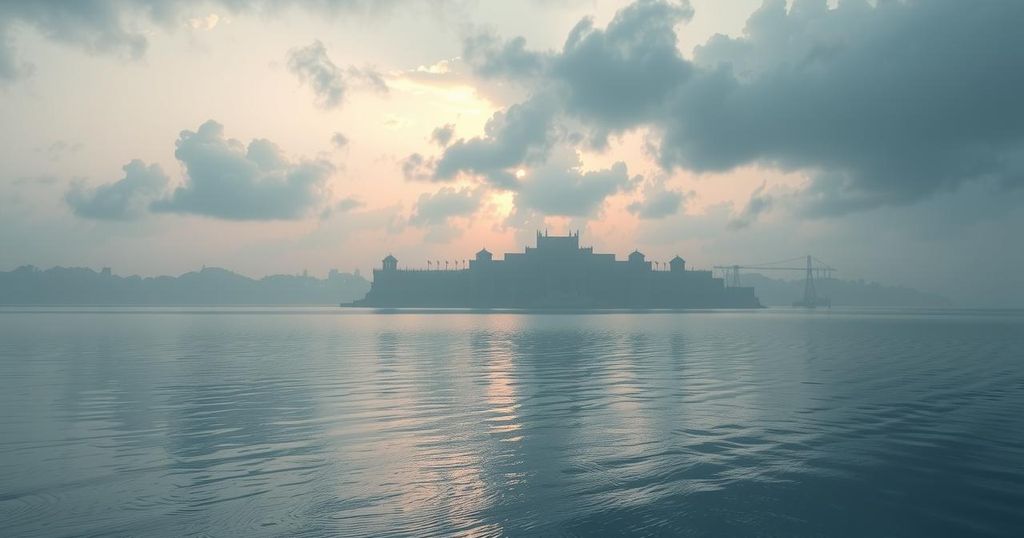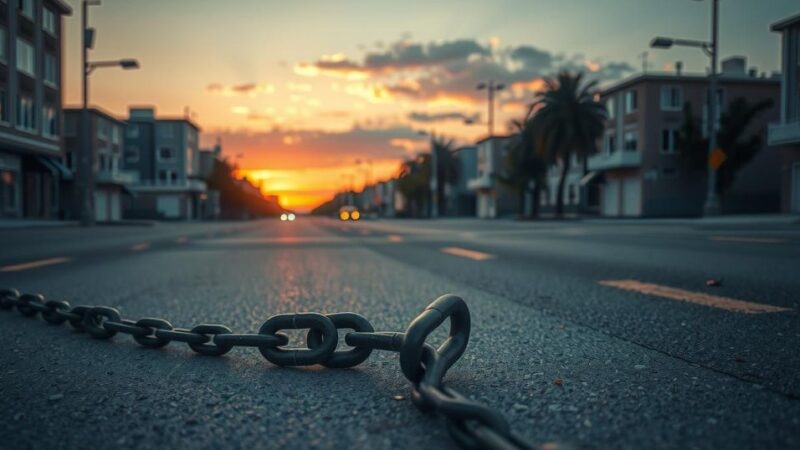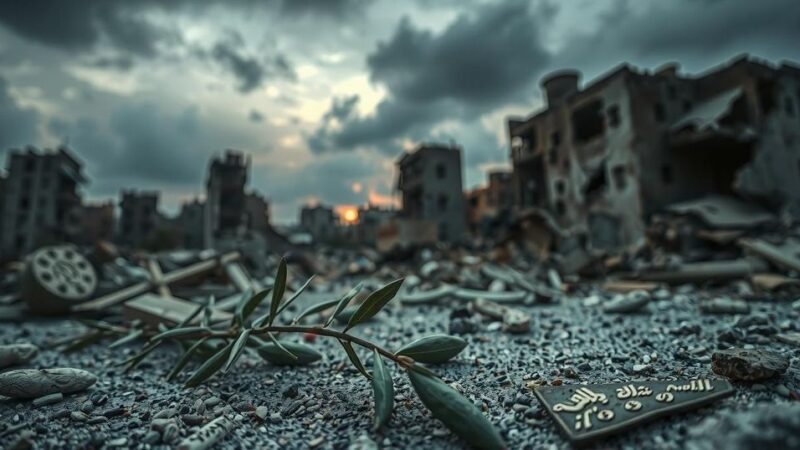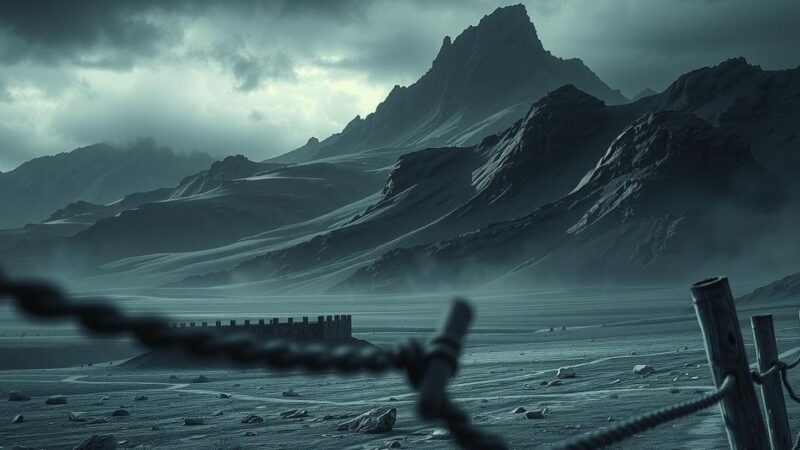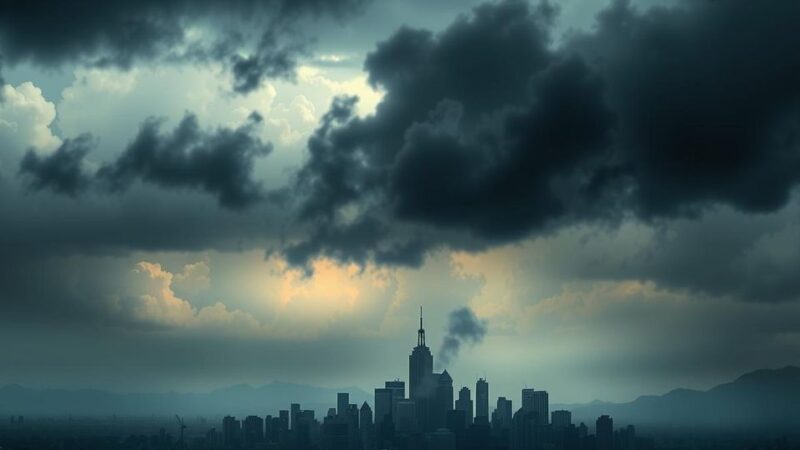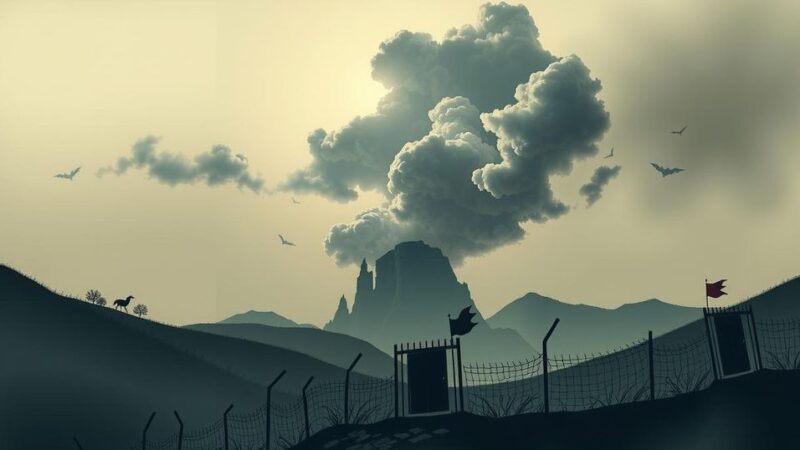Congolese troops successfully repelled a rebel advance on Goma, stabilizing the situation after an intense overnight assault. The M23 insurgency has escalated significantly this January, prompting international concern about a broader regional conflict as humanitarian conditions worsen. Calls from the U.S. and the EU urge the M23 and its backers, notably Rwanda, to cease hostilities.
In the early hours of Saturday, Congolese troops successfully thwarted an overnight offensive by Rwanda-backed rebel forces aiming to seize the eastern city of Goma, as reported by two military sources. The situation stabilized by morning, with locals cautiously resuming activities under significantly heightened police surveillance following intense bombardments the previous night.
The M23 insurgency, ongoing for three years, has escalated alarmingly this January, with rebels expanding their territory and openly declaring their intent to capture Goma. Congolese military units maintained a defensive position, effectively pushing back the attack despite heavy weapon assaults from the insurgents. An anonymous army officer confirmed, “We stopped their advance. We’re keeping them at a distance from Goma.”
This recent surge in hostilities has sparked concerns of a broader conflict, with the United Nations issuing warnings about the potential for regional warfare. Allegations against Rwanda assert that it is providing direct military support to the M23, which Rwanda has denied. Tragically, recent confrontations resulted in the death of North Kivu’s military governor and three South African servicemen, with additional casualties reported amid ongoing battles in the region.
The increase in violence has severely worsened humanitarian conditions, displacing 400,000 individuals thus far this year, according to the U.N. refugee agency. Human Rights Watch has expressed alarm over the deteriorating situation for civilians in Goma, characterizing their conditions as perilous. In reaction, both the U.S. Senate Foreign Relations Committee and the European Union have condemned the attacks and urged M23 to halt its advance.
The European Union has specifically called on Rwanda to stop its support for the M23 rebels and withdraw any military assistance. Historically, the M23 previously held Goma in 2012, prompting international action against Rwanda, although their current territorial control exceeds that of the past. This ongoing violence requires attentive international scrutiny to prevent further deterioration of stability in the region.
The conflict in the eastern Democratic Republic of Congo has a long history, characterized by insurgencies fueled by regional tensions and foreign influence. The M23, a rebel group primarily composed of Tutsi fighters, has been engaged in combat with government forces, exacerbating an already fragile humanitarian situation. The presence of foreign armies, including South African troops supporting the Congolese military, underscores the complex dynamics at play, with allegations of Rwandan involvement adding to regional instability. The potential for a wider conflict poses a serious threat to not only Goma but the broader region, necessitating global attention and intervention to address the humanitarian crisis and the security landscape.
The overnight repulsion of rebel advances on Goma highlights the ongoing volatility in the eastern Democratic Republic of Congo, exacerbated by the M23 insurgency and its implications for regional stability. With humanitarian conditions worsening and international calls for cessation of violence, the situation remains precarious. Continuous engagement from the international community is essential to prevent escalation and to safeguard the humanitarian needs of the civilian population affected by this prolonged conflict.
Original Source: www.hindustantimes.com

